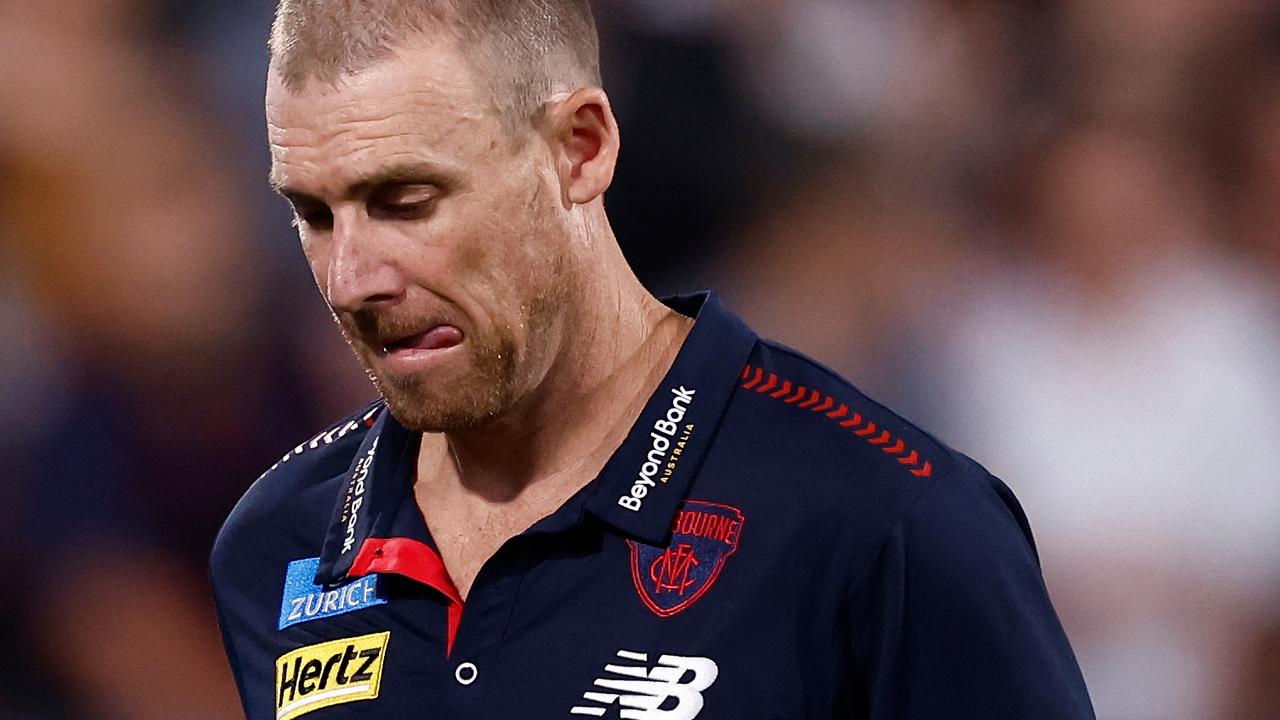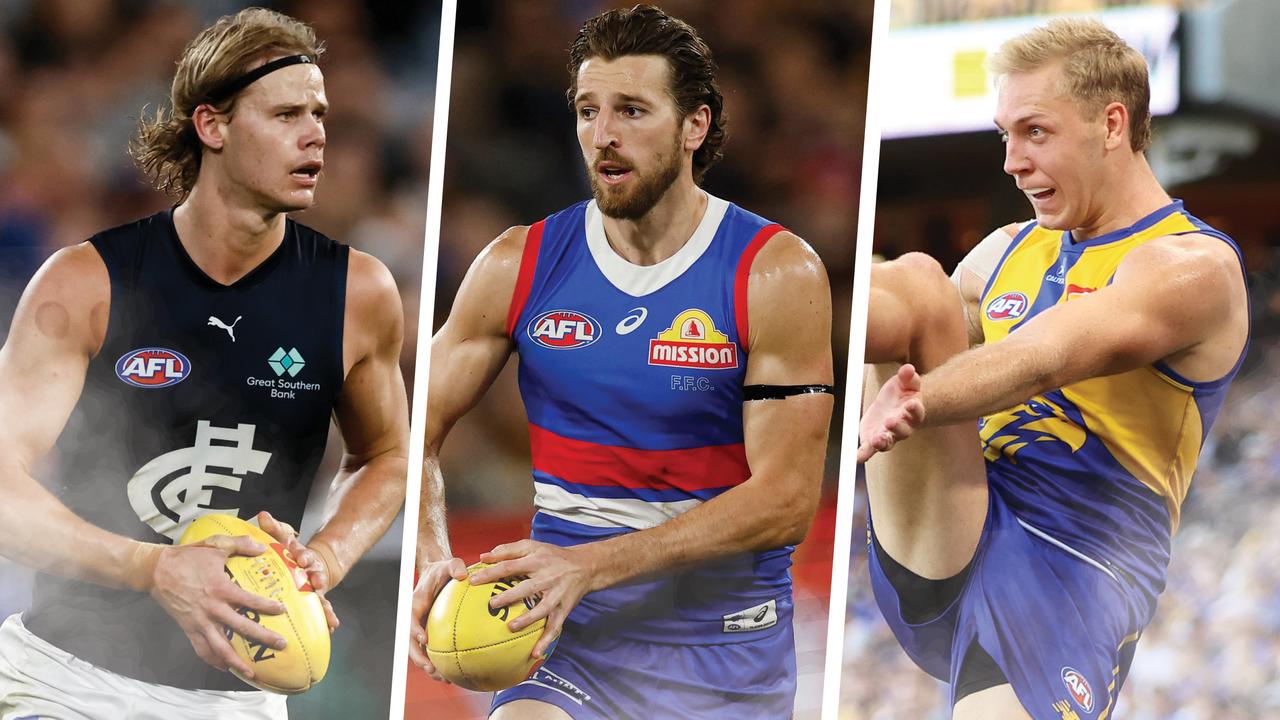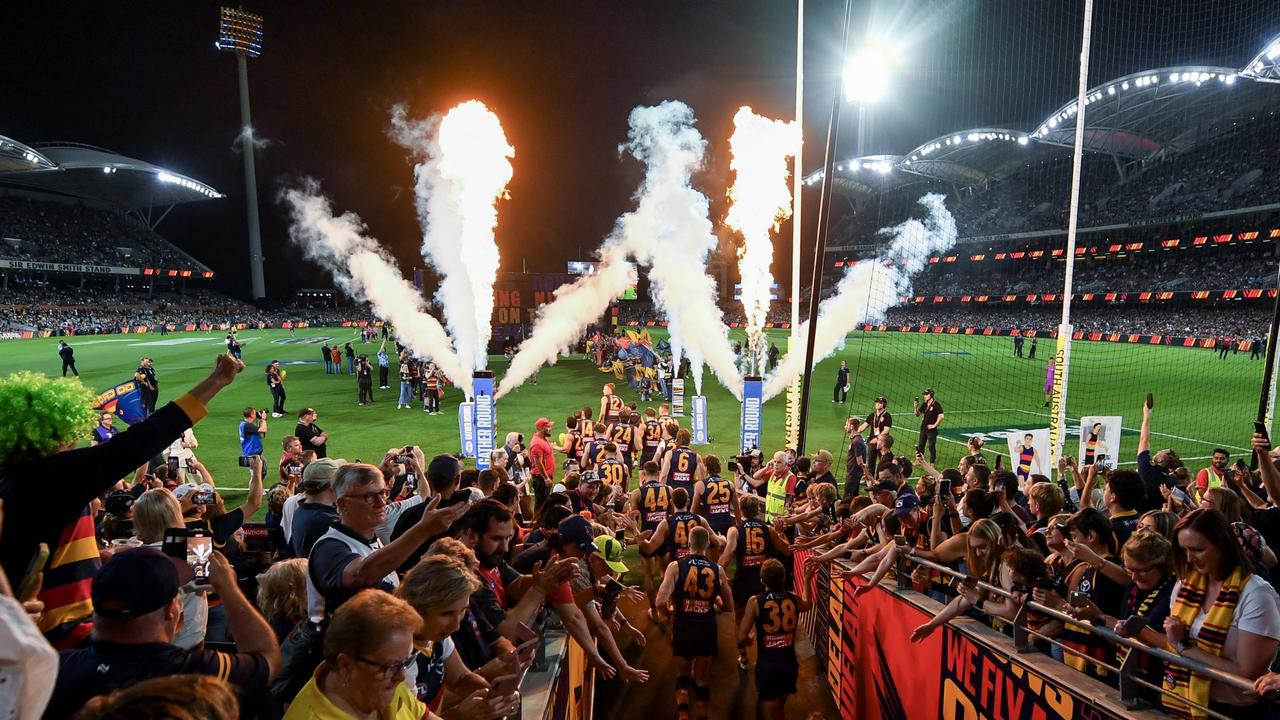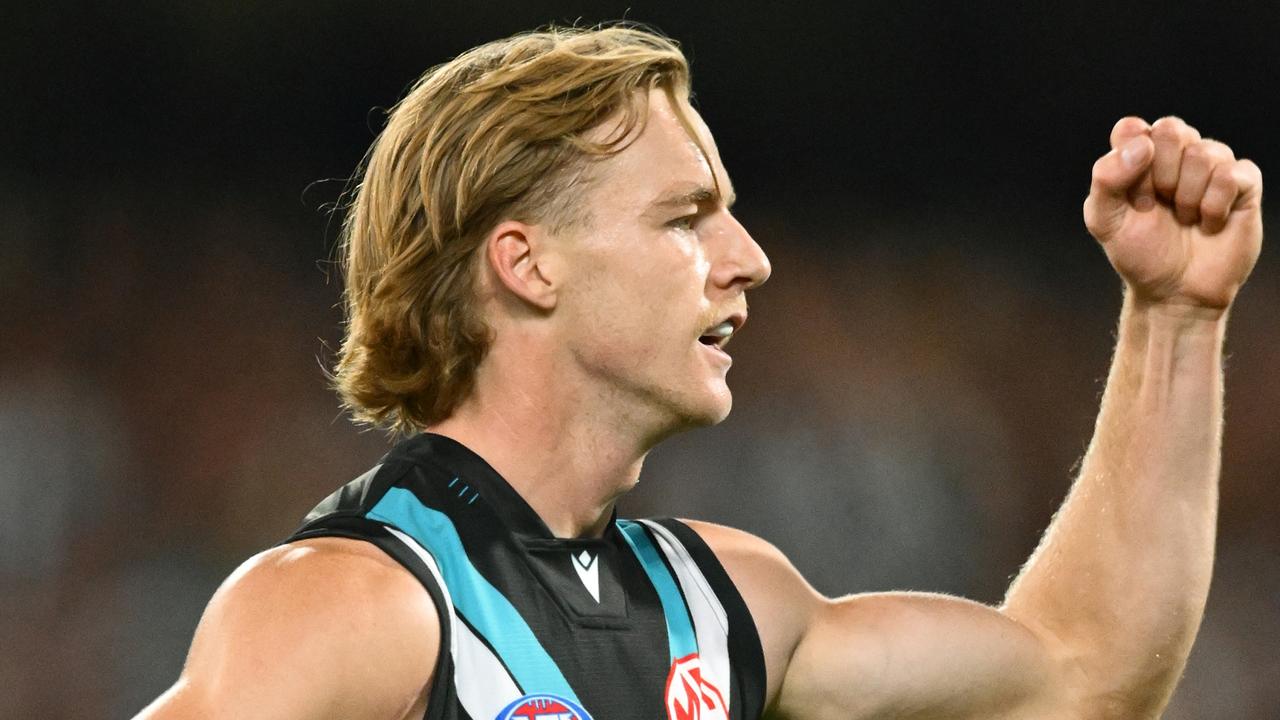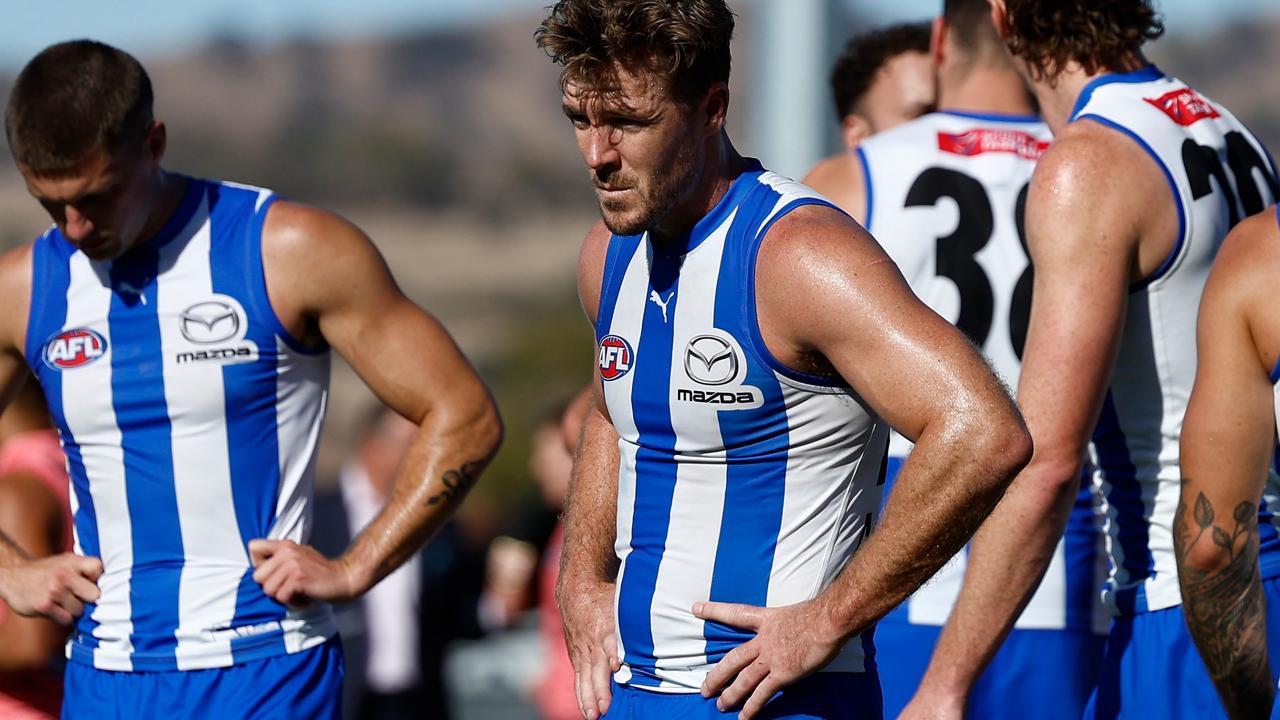It is time for Jobe Watson to be reinstated as the 2012 Brownlow Medal winner, writes Mike Sheahan
All these years later, the AFL still hasn’t offered any evidence that Essendon players took performance-enhancing drugs. Mike Sheahan says it is time to correct a football injustice.
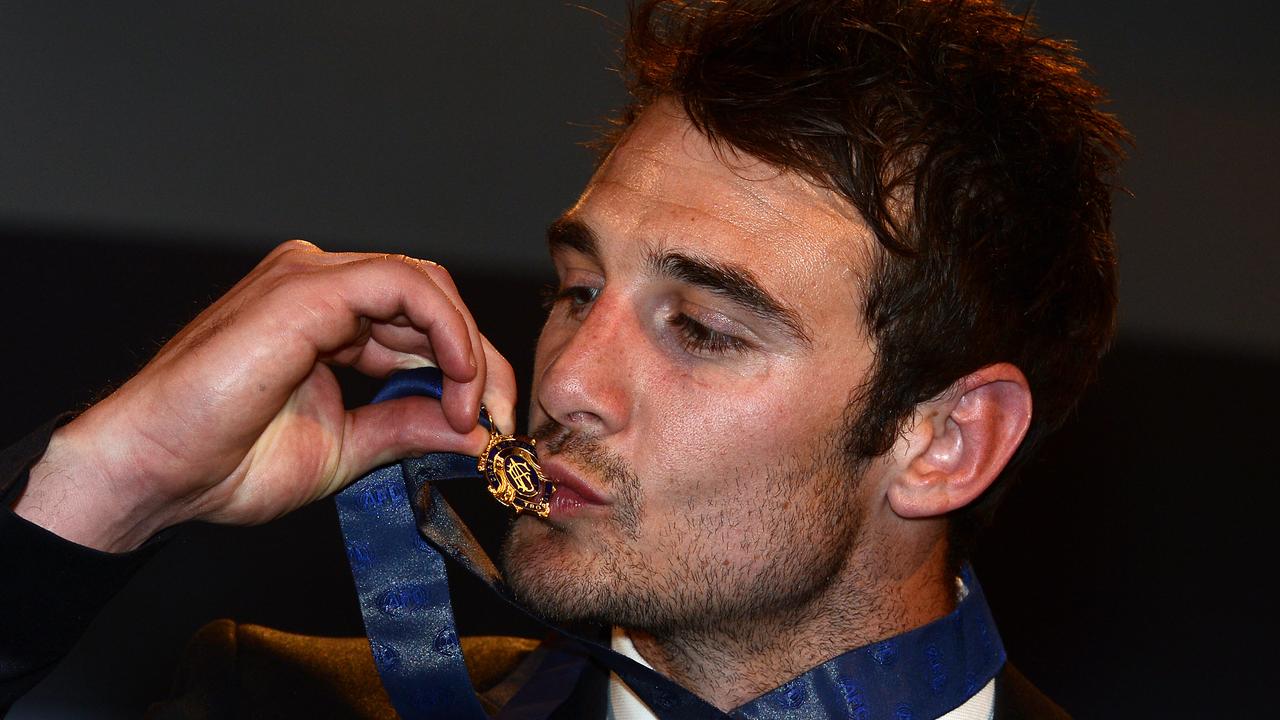
AFL
Don't miss out on the headlines from AFL. Followed categories will be added to My News.
The 100-year history of the Brownlow Medal is littered with quirks, mysteries and mistakes, yet it survives as the most glamorous individual award in football.
While the coaches and the players are regarded within the industry as more credible judges than the umpires, who determine the Brownlow, it’s “Charlie” that carries the most cachet ... by the length of the MCG.
Ask any of your football mates who won the 2022 Brownlow and they will instantly respond with Patrick Cripps.
Then ask them who won the Players Association Most Valuable Player award and the coaches’ award that year and they will guess: Cripps? ... Or was it Bontempelli? … Or Petracca? Or Oliver? Maybe it was Neale?
The 2022 AFLPA award was won by Andrew Brayshaw, the Coaches’ Association Player of the Year was shared by Touk Miller and Clayton Oliver. See what I mean?
That’s what a history of 100 years and a glitzy, televised medal count will do.
That’s also why it’s so important to redress the injustice perpetrated on Jobe Watson after he won the 2012 Brownlow.
The then Essendon captain polled 30 votes to win the count by four. Few of us were surprised.
Four years on, the AFL, desperate to be seen to be responding responsibly to the Essendon supplements scandal of the time, stripped Watson of his medal. Runners-up in 2012, Sam Mitchell and Trent Cotchin, were elevated to joint winners.
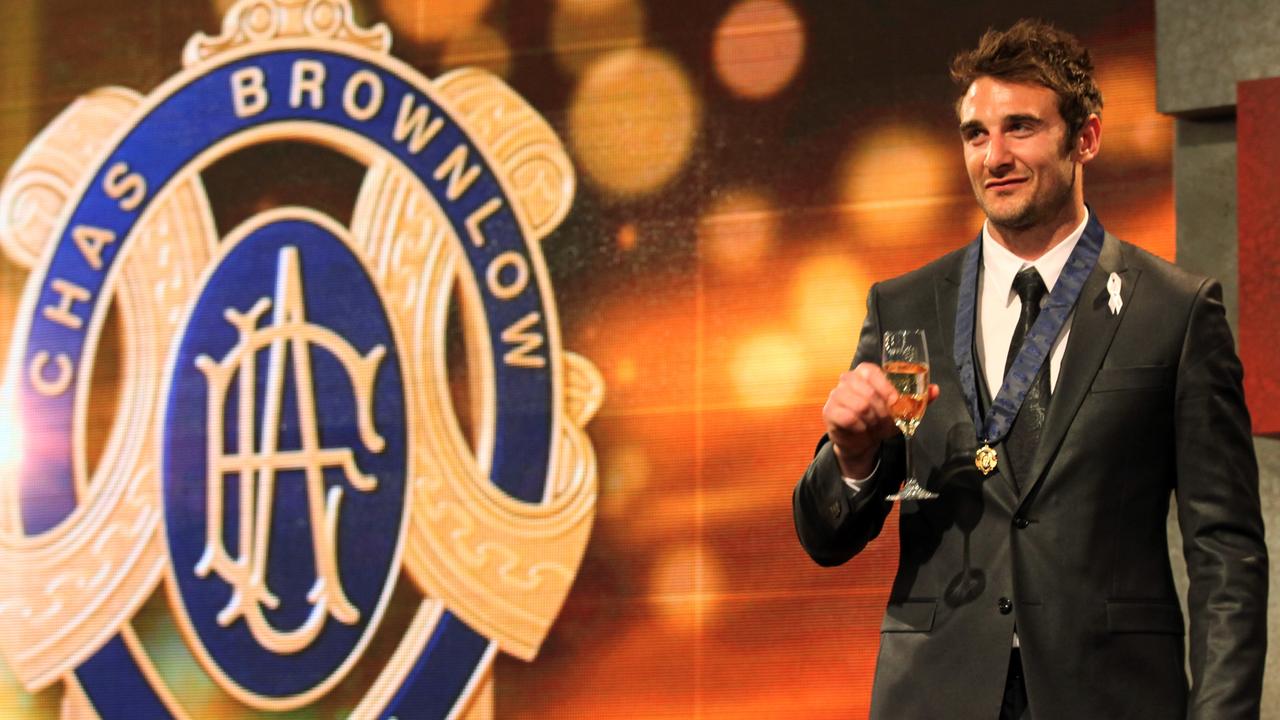
Watson and 33 others Essendon players from 2012 were found guilty of using the banned peptide Thymosin beta 4 and suspended for 12 months.
All these years later, the AFL still hasn’t offered any evidence that the Essendon players took performance-enhancing drugs.
It’s time to correct a miscarriage of justice, it’s time to reinstate Watson as a Brownlow Medallist.
Watson was a scapegoat, the young man who bore the brunt of the blame for his club’s horrendous leadership of the day.
Essendon’s chairman at the time of his suspension, Lindsay Tanner, said: “The club takes responsibility for placing Jobe in this position and unreservedly apologises to him and his family.
“Jobe is a person of the highest integrity and character and has the total support and admiration of our membership, staff, executive and board.”
Former AFL chief executive officer Andrew Demetriou, who read the votes the night Watson won, told me this week: “It’s one of the great tragedies of Australian sport that Jobe Watson lost his Brownlow Medal.
“It would have been interesting to see what might have happened if certain people had fought a bit harder to support him.”
My guess is Demetriou’s “certain people” were the AFL administration of the day (He moved on after the 2014 season).
AFLPA chief executive Paul Marsh said this week: “We said strongly at the time that Jobe shouldn’t have lost his Brownlow, and maintain that. The same applies to all of the Essendon players impacted through this saga.
“This was an issue of the club’s making and the players were the victims. Sadly there is so much damage that can’t be undone.”
In January 2016, three judges of the Court of Arbitration for Sport, an organisation based in Europe, had determined the 34 Essendon players violated the AFL’s anti-doping policy.
Yet, in March the previous year, the AFL anti-doping Tribunal had handed down a “not guilty” judgment on all the available evidence. The World Anti-Doping Authority appealed the AFL decision to CAS and won.
How, then, did the Court of Arbitration find to the contrary? Who knows, but WADA wanted blood.
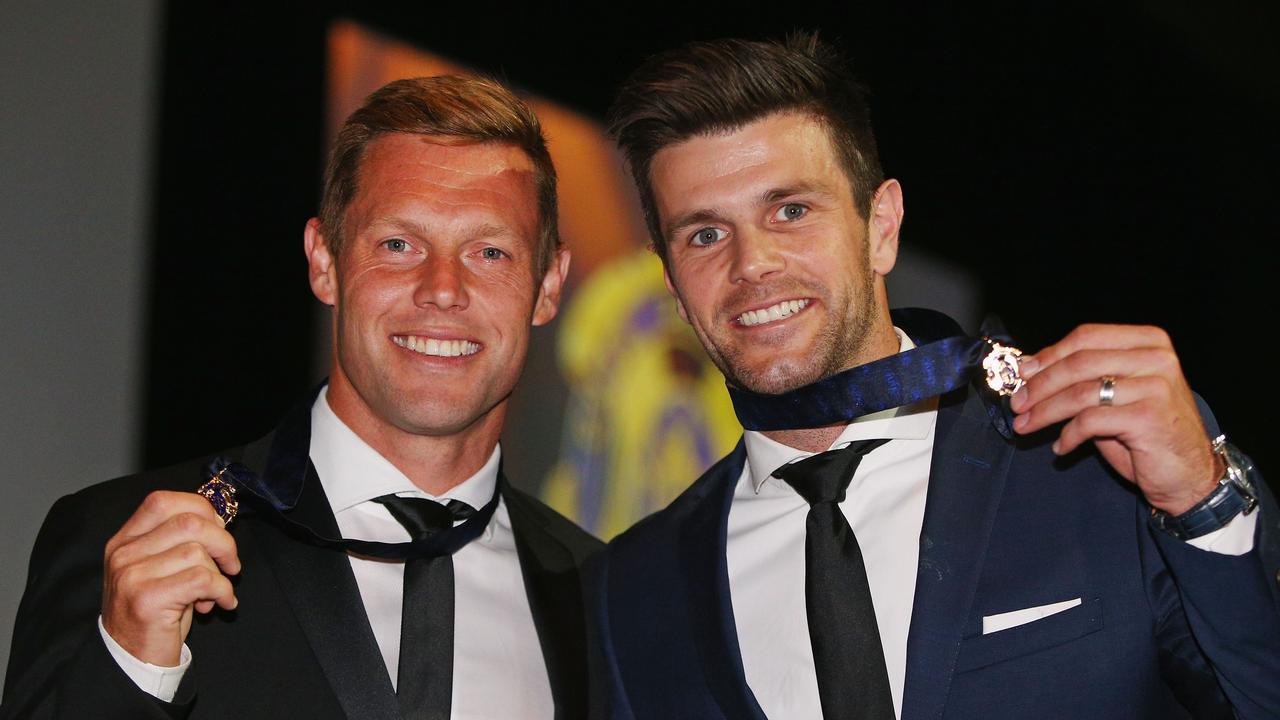
Administering mysterious pharmaceuticals en masse to players off site doesn’t sound kosher, but that doesn’t mean it makes them perform beyond their natural capabilities.
There is a school of thought that something had to be fishy when Watson suddenly went from a hardworking plodder to an elite midfielder. The theory was he must have done something radical to make the transition.
Yet Watson won Essendon’s best and fairest award in 2009-10, well before anyone other than Stephen Dank knew anything of AOD 9604 and Thymosin beta 4.
He finished top two in the club best and fairest award five times from 2006-13, winning in three years. He was captain for six years. That’s not the cv of a plodder ... or a bloke who would be party to cheating.
Not one of my acquaintance thinks anything other than Watson was a scapegoat.
Andrew Dillon’s ascension to the CEO’s office at the AFL offers the opportunity to right the wrong. The centenary of the Brownlow also makes the timing perfect. As does the clear softening in the AFL’s penalties regime on the use of prohibited substances.
There’s an obvious problem, of course, if Watson regains his medal and Brownlow Medal status.
What would it mean for Mitchell and Cotchin, currently listed as Brownlow winners for 2012?
My answer to that is we settle on three winners for that year, with an asterisk explaining why Mitchell and Cotchin tied with a player who scored four more votes.
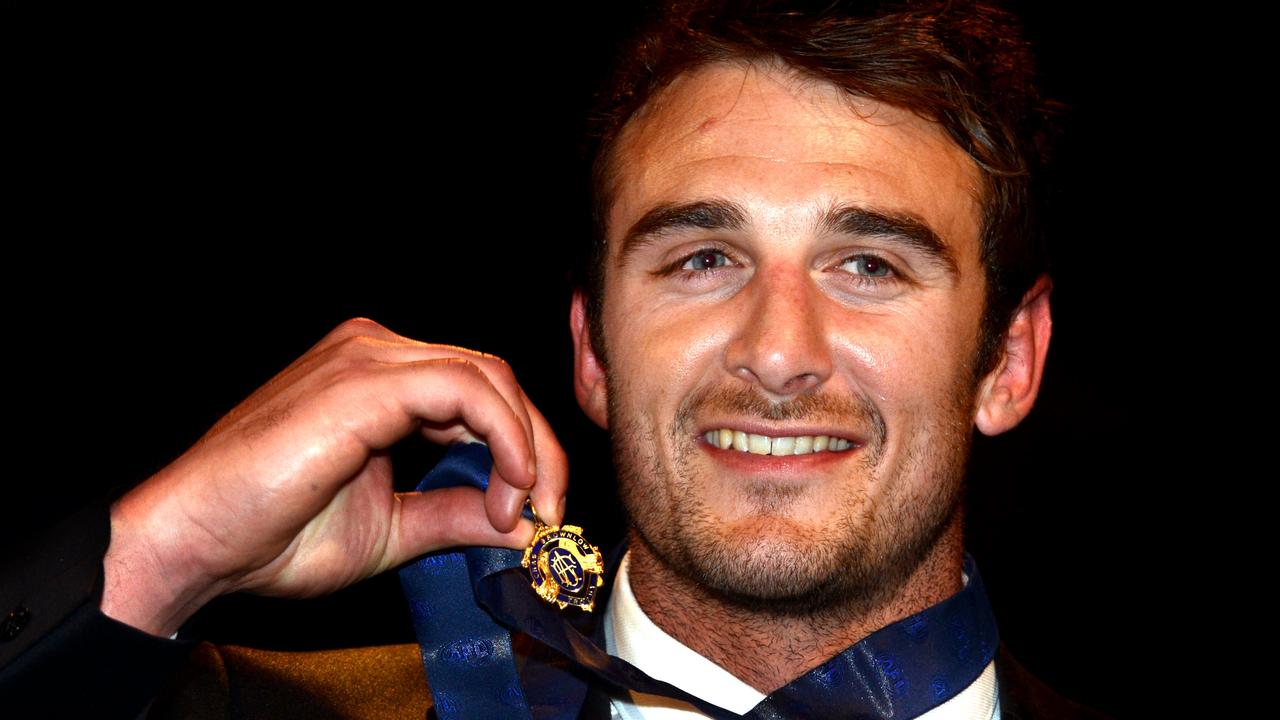
The only thing worse than getting something wrong is the failure to correct an obvious mistake.
Official publications explain why Corey McKernan (1996) and Chris Grant (1997) didn’t win the medal when they topped the Brownlow votes table (McKernan tied). It’s because they didn’t meet the “fairest” element of the criteria ... with McKernan rubbed out for the innocuous offence of tripping.
And, if Watson were seen to be exonerated, would it expose the league to financial claims by the players rubbed out for a year?
One other thing. If Watson - and his long-time teammate Dustin Fletcher, who was at Essendon in 2012 - remain tainted by the supplements saga, surely that would jeopardise their claims for a place in the AFL Hall of Fame, as their playing records justify.
That would be a travesty for both players, Essendon champions and greats of the game.
Come on, Dills, extend the olive branch to Jobe; football fans will love you.
Mike Sheahan was the Herald Sun chief football writer from 1993 to 2011.
More Coverage
Originally published as It is time for Jobe Watson to be reinstated as the 2012 Brownlow Medal winner, writes Mike Sheahan



